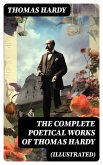In his compelling trio of works, *Look Homeward, Angel*, *Of Time and the River*, and *You Can't Go Home Again*, Thomas Wolfe navigates the complexities of identity, memory, and the inexorable passage of time. Wolfe's literary style is marked by its lyrical prose and stream-of-consciousness narrative, immersing the reader in the protagonist's introspective journey through the landscapes of his youth and the inevitable pull of home. This thematic exploration is set against the backdrop of early 20th-century America, a period characterized by profound social change and the quest for personal meaning amid external chaos. Thomas Wolfe, born in 1900 in Asheville, North Carolina, was acutely influenced by the southern landscape and his own tumultuous experiences as a young man. These elements imbue his writings with an authenticity reflective of the struggles of self-discovery and familial ties. Wolfe's passion for storytelling was nurtured by a rich literary environment, as he was mentored by contemporaries like F. Scott Fitzgerald and embraced the modernist techniques that shaped his distinctive voice. This anthology is recommended for readers seeking a deeper understanding of American literature's evolution and the complexities of human experience. Wolfe's profound insights and evocative language offer a cogent exploration of nostalgia and the search for belonging, making these works essential for anyone intrigued by the intersections of memory, place, and identity.
Dieser Download kann aus rechtlichen Gründen nur mit Rechnungsadresse in A, B, BG, CY, CZ, D, DK, EW, E, FIN, F, GR, H, IRL, I, LT, L, LR, M, NL, PL, P, R, S, SLO, SK ausgeliefert werden.









